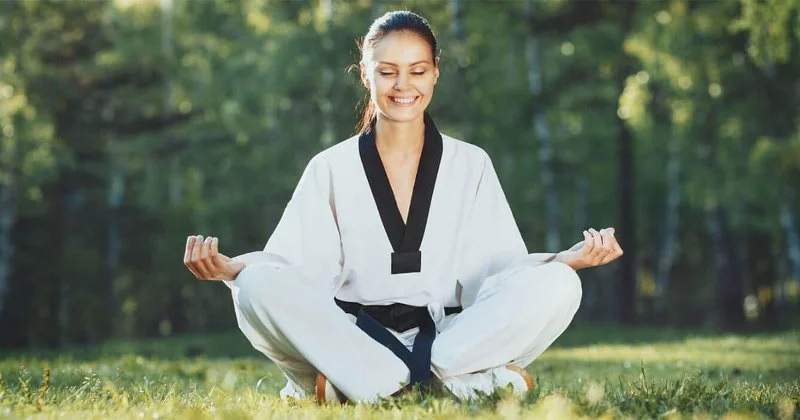
- 1. Understanding the Connection Between Meditation and Tae Kwon Do
- 2. The Psychological Foundation: Why Mindfulness Matters in Martial Arts
- 3. Practical Meditation Techniques for Advanced Tae Kwon Do Practitioners
- 4. Case Study: How Mental Focus Enhances Physical Precision
- 5. Integrating Meditation into Daily Training Routines
- 6. Expert Insight from Jeuns TKD Hub: Developing the Mind-Body Connection
1. Understanding the Connection Between Meditation and Tae Kwon Do
Meditation and mindfulness have long been integral to the martial arts journey, especially in advanced Tae Kwon Do practice. While Tae Kwon Do is known for its high-intensity kicks and dynamic forms, its true mastery lies in mental control and inner calm. Meditation serves as a bridge between physical technique and mental clarity, enabling practitioners to react efficiently under pressure.
Historically, Tae Kwon Do’s roots in Korean and Buddhist traditions emphasized self-discipline, respect, and awareness. Many grandmasters teach that a calm mind leads to precise movements and better judgment in both training and competition. Meditation cultivates this mental stillness, allowing practitioners to respond—not react—to the chaos of combat.
2. The Psychological Foundation: Why Mindfulness Matters in Martial Arts
Mindfulness is the act of being fully present in each moment—an essential quality in advanced Tae Kwon Do training. When performing complex forms or sparring against a skilled opponent, distractions can lead to mistakes. Through mindfulness, martial artists develop heightened awareness of their surroundings, balance, breathing, and even the opponent’s intentions.
In a competitive setting, mindfulness can be the deciding factor between success and failure. Fighters who maintain mental focus under stress are more likely to execute cleaner techniques and adapt mid-bout. For example, many elite Tae Kwon Do athletes incorporate breathing exercises before entering the ring to regulate heart rate and maintain composure. This blend of mental control and physical readiness is at the core of modern martial excellence.

Paul Prendergast Karate / paul prendergast
Brick TownshipOcean CountyNew Jersey
950 Cedar Bridge Ave, Brick Township, NJ 08723, USA
3. Practical Meditation Techniques for Advanced Tae Kwon Do Practitioners
Advanced practitioners often blend meditation into their daily training routine. One popular approach is seated breath meditation, where students focus solely on breathing patterns to calm the mind before physical drills. Another technique, known as moving meditation, involves performing forms slowly and mindfully—paying attention to every movement, muscle tension, and shift in balance.
Visualization is also a powerful form of meditation in Tae Kwon Do. By mentally rehearsing sparring strategies, poomsae sequences, or self-defense techniques, practitioners strengthen neural pathways that improve muscle memory. Over time, these meditative practices sharpen intuition, allowing fighters to anticipate and counter attacks instinctively.
4. Case Study: How Mental Focus Enhances Physical Precision
Consider the example of a black belt student preparing for a national-level competition. Despite physical readiness, their performance initially suffered from anxiety and overthinking. After incorporating mindfulness meditation into their warm-up routine—spending ten minutes in quiet breathing and visualization—their focus improved dramatically. The result was smoother transitions, quicker reaction times, and a noticeable increase in overall confidence.
This real-world application highlights a truth known to many Tae Kwon Do masters: the mind leads the body. Once the mind is steady, the body naturally follows with precision and power. The discipline learned through meditation directly enhances technical execution, transforming good practitioners into great ones.
5. Integrating Meditation into Daily Training Routines
For those seeking to incorporate mindfulness into advanced Tae Kwon Do practice, consistency is key. Starting or ending each class with a few minutes of focused breathing can set the tone for deeper learning. During intense sparring sessions, practitioners can apply micro-meditation—briefly resetting focus between rounds through steady inhalation and exhalation.
Instructors at top dojangs often recommend maintaining a meditation journal to track emotional state and focus progression over time. This reflective practice helps students recognize patterns in their mental performance and identify triggers that impact concentration. Integrating these methods not only improves martial ability but also promotes mental well-being and emotional balance outside the dojang.
6. Expert Insight from Jeuns TKD Hub: Developing the Mind-Body Connection
At Jeuns TKD Hub, instructors emphasize that meditation and mindfulness are not optional extras—they are essential tools for mastering advanced Tae Kwon Do. By combining traditional training with guided meditation sessions, students learn to synchronize breath, movement, and intent. This alignment enhances everything from reaction time to sparring strategy.
Experts from Jeuns TKD Hub encourage practitioners to treat mental conditioning with the same dedication as physical training. True martial artistry lies not only in strength and speed but in awareness, patience, and self-control. Through consistent mindfulness practice, students unlock the deeper spiritual essence of Tae Kwon Do—one that transcends competition and becomes a lifelong path of personal growth.


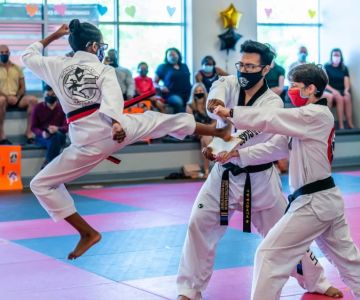
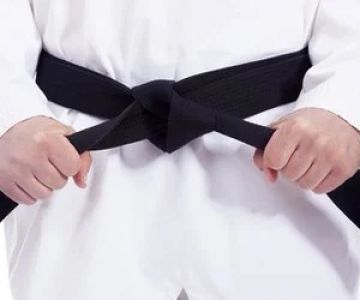
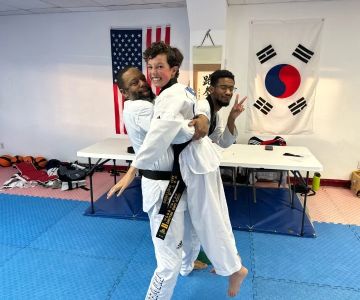
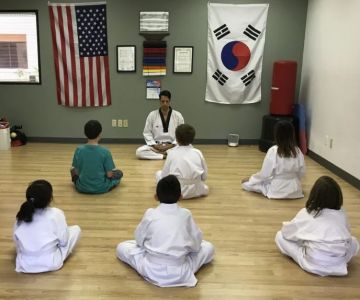
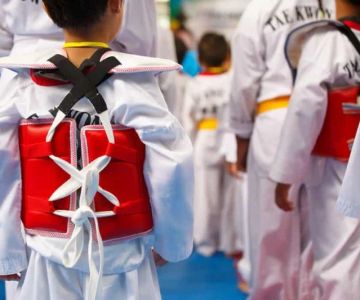
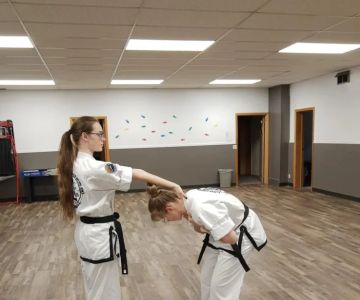
 Fort Walton ATA Martial Arts4.0 (11 reviews)
Fort Walton ATA Martial Arts4.0 (11 reviews)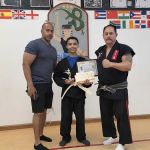 Universal Warrior Mixed Martial Arts4.0 (27 reviews)
Universal Warrior Mixed Martial Arts4.0 (27 reviews) Team Pure Fitness4.0 (27 reviews)
Team Pure Fitness4.0 (27 reviews)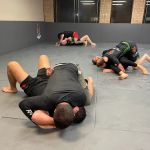 Heart & Dagger BJJ5.0 (112 reviews)
Heart & Dagger BJJ5.0 (112 reviews)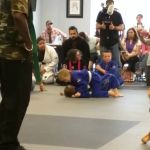 Twin Tigers Martial Arts5.0 (38 reviews)
Twin Tigers Martial Arts5.0 (38 reviews) Champions Martial Arts Upper East Side5.0 (51 reviews)
Champions Martial Arts Upper East Side5.0 (51 reviews)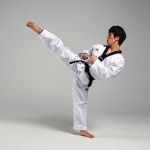 How to Execute a Jumping Roundhouse Kick to the Head
How to Execute a Jumping Roundhouse Kick to the Head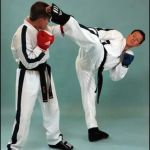 How to Execute a Double Kick Combination in Sparring
How to Execute a Double Kick Combination in Sparring How to Perform a Flawless Axe Kick: A Step-by-Step Guide
How to Perform a Flawless Axe Kick: A Step-by-Step Guide DIY Tae Kwon Do Training Equipment for Home Practice
DIY Tae Kwon Do Training Equipment for Home Practice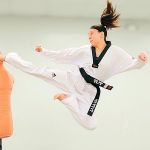 How to Increase Your Vertical Jump for Tae Kwon Do Flying Kicks
How to Increase Your Vertical Jump for Tae Kwon Do Flying Kicks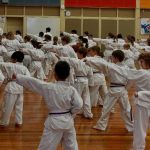 The History of the Tae Kwon Do Peace Corps
The History of the Tae Kwon Do Peace Corps